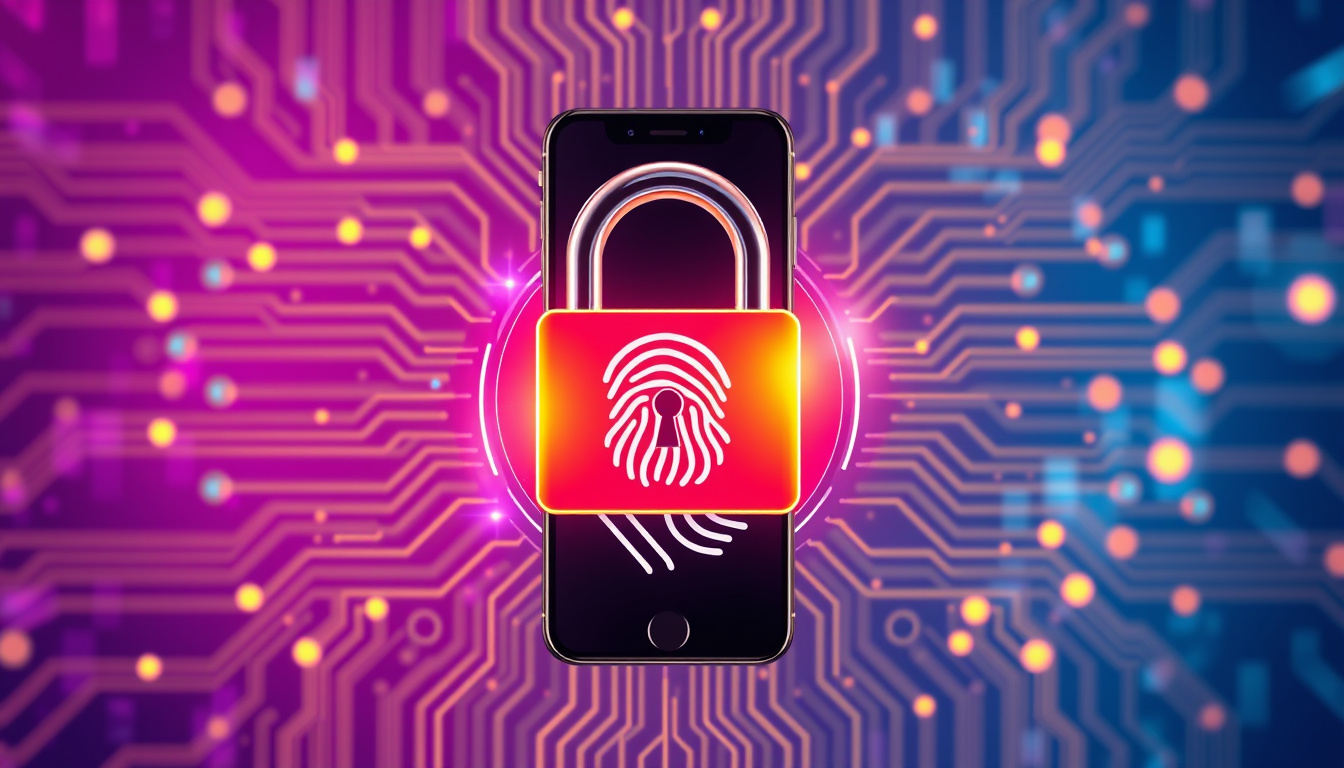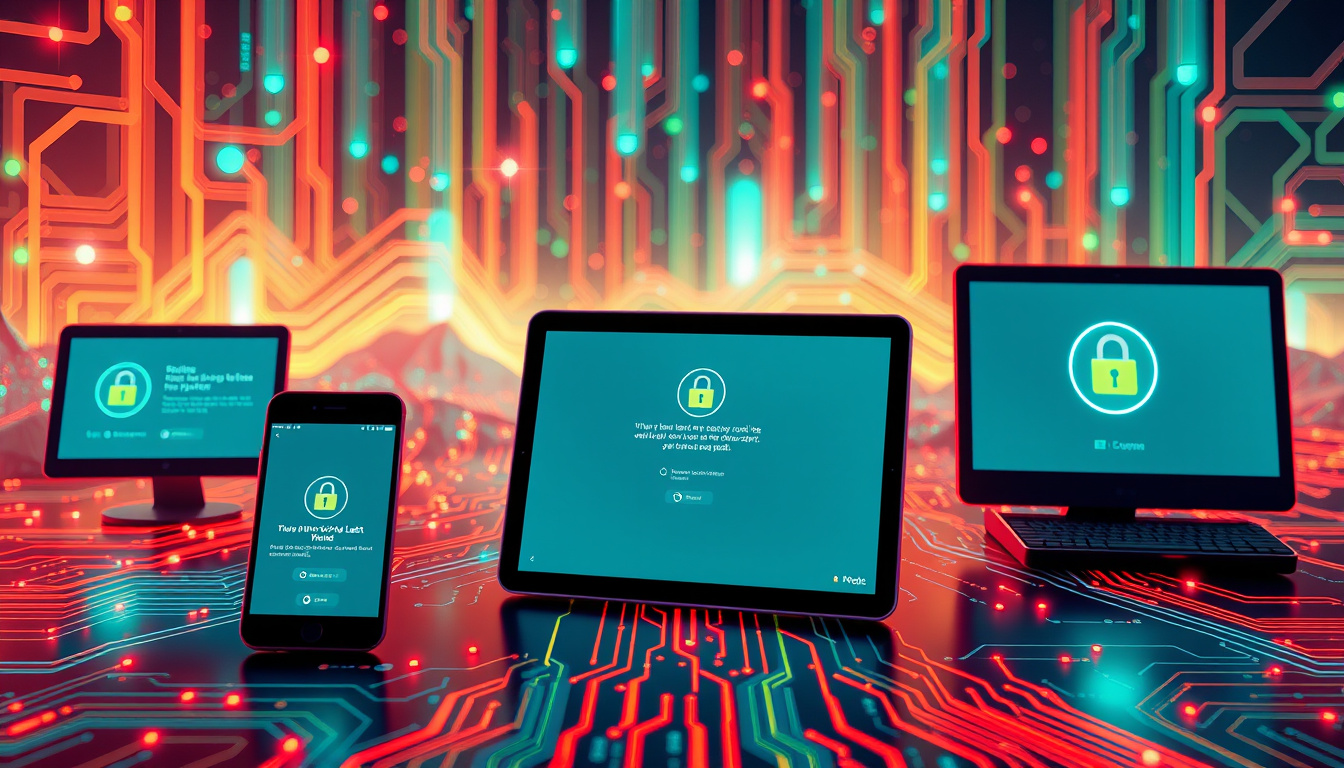In today’s digital age, safeguarding your online identity has never been more critical. Cybersecurity threats are rampant, and individuals are continually targeted by cybercriminals seeking to exploit personal information. This article highlights essential cybersecurity tips to protect your online privacy, ensuring that you can navigate the internet safely. From managing passwords effectively to utilizing two-factor authentication and safeguarding personal information on social media, these strategies will help strengthen your online defenses.

Key Takeaways
- Awareness of online privacy threats is crucial for cybersecurity.
- Implementing strong password management techniques enhances your digital security.
- Two-factor authentication adds an extra layer of protection for your accounts.
- Be mindful of what personal information you share on social media to safeguard your privacy.
- Regularly updating software and devices helps protect against the latest security vulnerabilities.
Understanding Online Privacy Threats
In today’s digital landscape, understanding online privacy threats is more crucial than ever. As we increasingly rely on the internet for communication, banking, and social interaction, the risks associated with our personal data continue to grow. Hackers, malicious software, and phishing scams are just a few of the dangers that can compromise your private information. To fortify your defenses, incorporating effective cybersecurity tips to protect your online privacy is essential. Start by using strong, unique passwords for each of your online accounts, and consider enabling two-factor authentication for an added layer of security. Regularly updating your software and being cautious about the information you share on social media can significantly reduce your vulnerability. Additionally, utilizing a reliable VPN service can help conceal your online activities from prying eyes, ensuring a safer browsing experience. By being proactive and following these cybersecurity tips, you can safeguard your personal information and enjoy a secure online presence.
Essential Password Management Techniques
In an age where online threats are ever-present, employing effective password management techniques is crucial for ensuring your cybersecurity. One of the foundational cybersecurity tips to protect your online privacy is the use of complex passwords that combine letters, numbers, and symbols, making them harder for attackers to guess. Additionally, utilizing a password manager can streamline the process of generating and storing strong passwords securely, allowing you to create unique credentials for each account without the hassle of remembering them all. Furthermore, enabling two-factor authentication (2FA) adds an extra layer of security, requiring not just your password but also a second piece of information to log in successfully. Regularly updating your passwords and avoiding the reuse of old ones can significantly reduce your vulnerability to breaches. By incorporating these essential password management techniques into your cybersecurity practices, you can better protect your online privacy and reduce the risk of falling victim to cybercrime.
‘The greatest threat to our planet is the belief that someone else will save it.’ – Robert Swan

Utilizing Two-Factor Authentication
In an era where online threats are ever-evolving, utilizing two-factor authentication (2FA) stands out as one of the most effective cybersecurity tips to protect your online privacy. By implementing 2FA, you add an additional layer of security to your accounts beyond just a password, requiring a second form of verification, such as a text message code or an authentication app. This simple step can significantly reduce the risks associated with unauthorized access, offering robust protection against hackers who may compromise your login details. For better protection, it’s crucial to choose 2FA methods wisely—opt for applications like Google Authenticator or Authy instead of SMS for enhanced security. Incorporating 2FA as part of your regular online practices can greatly fortify your personal data and is a pivotal aspect of comprehensive cybersecurity strategies.
Safeguarding Personal Information on Social Media
In today’s digital age, the importance of safeguarding personal information on social media cannot be overstated. With the rise of online networking, users are increasingly vulnerable to cyber threats. Implementing effective cybersecurity tips to protect your online privacy is essential. Start by using strong, unique passwords for each social media account and enable two-factor authentication whenever possible. This adds an extra layer of security, making it more difficult for hackers to gain access. Furthermore, be mindful of the information you choose to share publicly. Adjust your privacy settings to limit who can view your posts, pictures, and personal details. Regularly review and remove any applications or third-party services that have access to your social media accounts, as these can pose additional risks. Finally, educate yourself on the common tactics used by cybercriminals, such as phishing attacks and social engineering, to effectively recognize and avoid potential threats. By following these cybersecurity tips to protect your online privacy, you can enjoy the benefits of social media while minimizing the risks involved.

Keeping Software and Devices Up-to-Date
Keeping software and devices up-to-date is one of the most essential cybersecurity tips to protect your online privacy. Regular updates often include patches that fix vulnerabilities in your system, which hackers can exploit to gain unauthorized access to your personal data. By enabling automatic updates for your operating system, applications, and security software, you ensure that you are always running the latest versions—equipped with robust defenses against evolving threats. Furthermore, outdated apps can harbor security flaws that may jeopardize your data, making it crucial to check for updates routinely. In combination with other best practices, such as using strong passwords and enabling two-factor authentication, keeping your software current significantly enhances your overall cybersecurity posture.
Frequently Asked Questions
What are the main online privacy threats I should be aware of?
Main online privacy threats include phishing attacks, data breaches, malware, identity theft, and unsecured Wi-Fi networks. It’s important to stay informed about these threats as they can compromise your personal information.
How can I create strong passwords for my accounts?
To create strong passwords, use a combination of uppercase and lowercase letters, numbers, and special characters. Aim for at least 12 characters and avoid using easily guessed information like birthdays or names. Consider using a password manager to help you generate and store complex passwords securely.
What is two-factor authentication and why is it important?
Two-factor authentication (2FA) adds an extra layer of security by requiring not only a password but also a second form of verification, such as a text message or authentication app code. This makes it significantly harder for unauthorized users to access your accounts.
How can I protect my personal information on social media?
To protect your personal information on social media, adjust your privacy settings to limit who can see your posts, avoid sharing sensitive information publicly, and be cautious about friend requests from unknown individuals. Regularly review who has access to your data.
Why is it important to keep my software and devices up-to-date?
Keeping your software and devices up-to-date is crucial because updates often include security patches that fix vulnerabilities. Outdated software can be exploited by cybercriminals to gain access to your information, so regular updates help protect your online security.

Leave a Reply